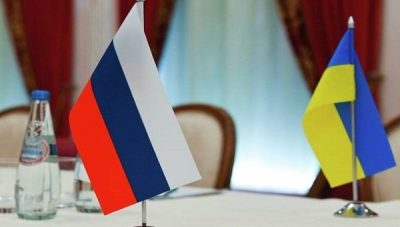Why Did US Torpedo April Ukraine War Negotiated Settlement?

All Global Research articles can be read in 51 languages by activating the “Translate Website” drop down menu on the top banner of our home page (Desktop version).
To receive Global Research’s Daily Newsletter (selected articles), click here.
Visit and follow us on Instagram, Twitter and Facebook. Feel free to repost and share widely Global Research articles.
***
Most Americans are unaware how close Russia and Ukraine came to ending the current war in April.
Last March 27, Ukraine president Zelensky told his people “Our goal is obvious – peace and the restoration of normal life in our native state as soon as possible.”
He was hinting at what went unsaid: Ukraine and Russia, brokered by NATO member Turkey, reached a tentative fifteen-point peace plan to end the month old war. Key points were Russia withdraw from all Ukraine except for breakaway Donbas and Crimea. Ukraine would pass on future NATO membership, pledging neutrality between Russia and NATO. Donbas and Crimea would undergo political transition based on self-determination to be recognized by both combatants. Ukraine security would be guaranteed by neighboring countries but no foreign troops would enter Ukraine.
What’s not to like?
For the US weapons makers, the end to a weapons manufacturing boondoggle. That $60 billion in free weaponry to Ukraine fighters has depleted our ammo dumps.
For the US military, the end to a new perpetual war, albeit a proxy one, to relieve the boredom of peace.
For the political class, the end to the new Cold War with Russia to weaken, marginalize, and keep them from economic integration with Europe.
So on April 9, Uncle Sam sent Boris Johnson, the latest version of America’s British Prime Minister poodle, to Kiev, to school Zelensky on who’s running the war. The UK, Johnson advised “was in it for the long run,” would not be party to any Ukraine, Russian agreement since the “collective West” saw a chance to “press” Russia and make the most of it. Johnson cannot be accused of subtlety.
Two weeks later, the US sent Defense Secretary Lloyd Austin to Kyiv to reinforce Johnson’s warning and make clear the US and NATO were determined to use the war to “weaken” Russia. NATO ally Turkey has blamed the US and UK for sabotaging a promising chance to end the war early on.
When it comes to provoking, preventing and prolonging senseless war, America always fails the test of peace. Getting back to the question posed: Why did the US torpedo the April Ukraine war negotiated settlement?
Because we can.
*
Note to readers: Please click the share buttons above or below. Follow us on Instagram and Twitter and subscribe to our Telegram Channel. Feel free to repost and share widely Global Research articles.
Walt Zlotow became involved in antiwar activities upon entering University of Chicago in 1963. He is current president of the West Suburban Peace Coalition based in the Chicago western suburbs. He blogs daily on antiwar and other issues at www.heartlandprogressive.blogspot.com.
Featured image is from InfoBrics

